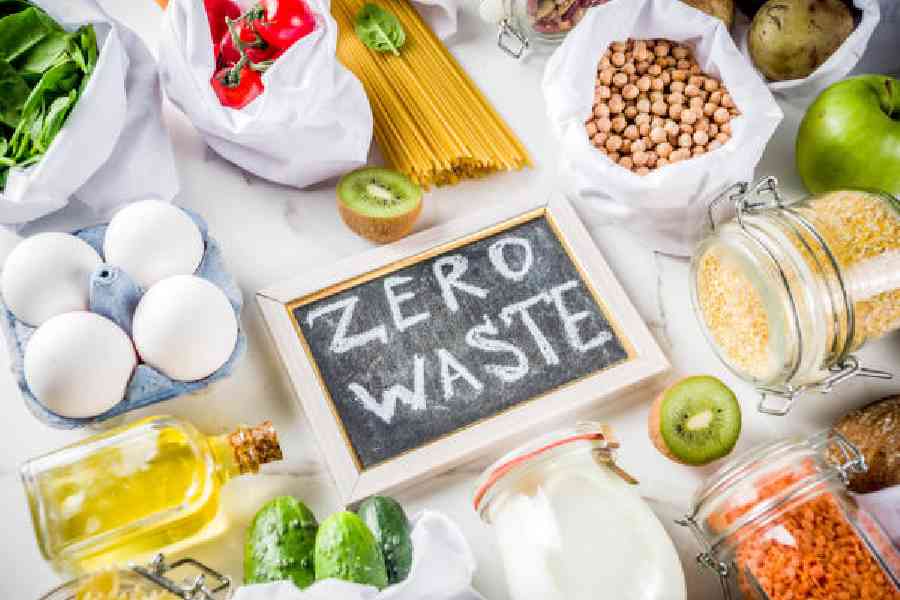Growing up, my mother always said: “Waste not, want not”! This cannot hold truer today! In the heart of our kitchens, where culinary magic unfolds, lies a powerful opportunity to embrace sustainability through zero-waste cooking. This practice not only minimises our environmental footprint but also celebrates creativity, and resourcefulness and it often generates the most yummy and healthy dishes. At Paprika, we believe in turning our kitchen into a bastion of sustainability with some simple yet effective hacks.
What is zero-waste cooking?
Zero-waste cooking is all about utilising every part of an ingredient, reducing food waste, and making mindful choices that benefit both our health and the planet. It’s a philosophy that transforms scraps into treasures and leftovers into culinary masterpieces.
Whole-ingredient cooking at its finest!
When we think of vegetables, we often limit ourselves to the commonly used parts, such as the florets of broccoli or the roots of carrots and beets. However, whole-ingredient cooking encourages us to go beyond these norms and use every part of the vegetable, maximising both nutrition and flavour while minimising waste.
Carrot tops are frequently discarded, but they are actually highly nutritious and versatile. These leafy greens are rich in vitamins and minerals, especially vitamin K, which is essential for bone health and blood clotting.
Broccoli stems too are frequently discarded, even though they are just as nutritious as the florets. They are a good source of fibre and vitamin C.
The art of repurposing leftovers
Revisiting leftovers is a powerful strategy in reducing food wastage and promoting sustainability in our kitchens. Instead of letting perfectly good food go to waste, repurpose it into new and exciting dishes. For instance, transform yesterday’s roast chicken into a hearty chicken soup by simmering it with vegetables to create a rich broth, then adding shredded chicken and fresh or leftover vegetables. Similarly, leftover rice can be turned into a vibrant fried rice dish by sautéing it with vegetables, proteins, and seasonings, or repurposed into a sweet and creamy rice pudding.
These practices not only help in minimising food waste but also add variety and nutrition to our meals. By being creative with leftovers, we can save money, reduce our environmental footprint, and discover new culinary delights. Embracing this approach is a simple yet impactful way to contribute to a more sustainable food system.
Composting: Giving back to the Earth
Embrace composting to handle kitchen scraps. Despite our best efforts to minimise waste, some kitchen scraps are inevitable. Composting provides an excellent way to manage these remnants, turning them into valuable compost that enriches the soil and reduces landfill waste.
You can compost:
l Vegetable peels and fruit scraps: Include peels, cores and unused parts of fruits and vegetables.
l Coffee grounds and tea bags: Add nitrogen to the compost.
l Eggshells: Crushed, they add calcium to the soil.
l Paper towels and napkins: If free from chemicals, they can be composted.
Benefits of composting:
l Reduces landfill waste: Decreases methane emissions from landfills.
l Enriches soil: Improves soil structure and fertility.
l Supports sustainable gardening: Reduces the need for chemical fertilisers.
How to compost without a backyard?
l Kitchen Compost Bins: Designed for indoor use with odour control.
l Bokashi Composting: Ferments food waste anaerobically.
l Vermicomposting: Uses worms to break down organic matter.
l Community Composting Programs: Drop off kitchen scraps at designated locations.
By integrating composting into your routine, you reduce waste, support soil health, and contribute to a more sustainable lifestyle. Whether you have a backyard or not, there’s a composting solution to fit your needs.
Smart storage solutions
Proper storage extends the life of your groceries, reducing waste. Invest in airtight containers, reusable silicone bags, and beeswax wraps to keep your food fresh for longer. Store herbs in a glass of water in the fridge to prolong their life, and freeze excess produce to use later. By mastering the art of smart storage, you ensure that nothing goes to waste.
DIY kitchen staples
Homemade staples like vegetable broth, nut milk, and condiments can significantly reduce waste and save money, and are much healthier than their store-bought counterparts. Save vegetable scraps like onion skins, carrot peels and celery tops to make a flavourful broth. Use leftover nuts to make fresh nut milk, and create your own sauces and dressings with simple, natural ingredients.
Meal planning and mindful shopping
One of the cornerstones of zero-waste cooking is mindful meal planning and shopping. Plan your meals for the week, make a detailed shopping list, and stick to it. Buy in bulk where possible, bringing your own containers to reduce packaging waste. This approach ensures you buy only what you need, preventing over-purchasing and food spoilage.
Embracing imperfect produce
Often, fruits and vegetables with cosmetic blemishes are discarded. Embrace these imperfect produce items, which are just as nutritious and delicious as their perfect counterparts. They can be used in soups, stews, smoothies, and baked goods where appearance doesn’t matter, thereby reducing waste and supporting sustainable farming practices.
By adopting these zero-waste cooking practices, you’re not only contributing to a healthier planet but also discovering a world of culinary innovation and creativity that’s good for your body and soul. Let’s cook with conscience and savour every bite with the knowledge that we’re making a positive impact.
Happy sustainable cooking!
Vidisha Bathwal is the founder of Paprika Gourmet, an exotic artisan catering service brand in Calcutta. She’s also a passionate foodie and a fitness enthusiast
